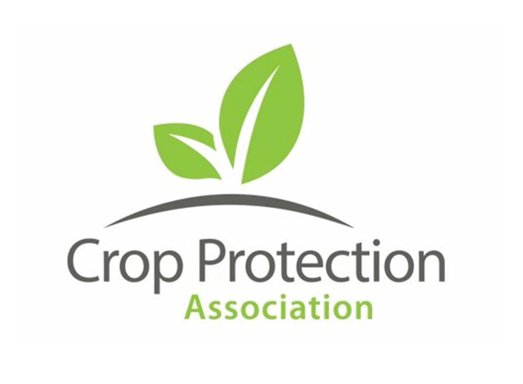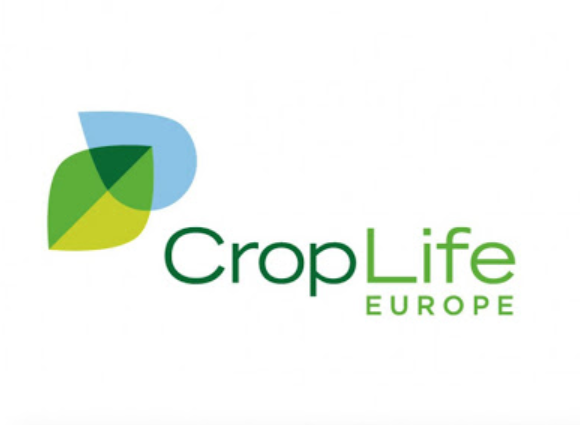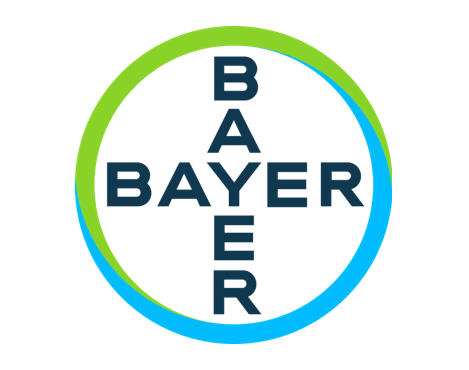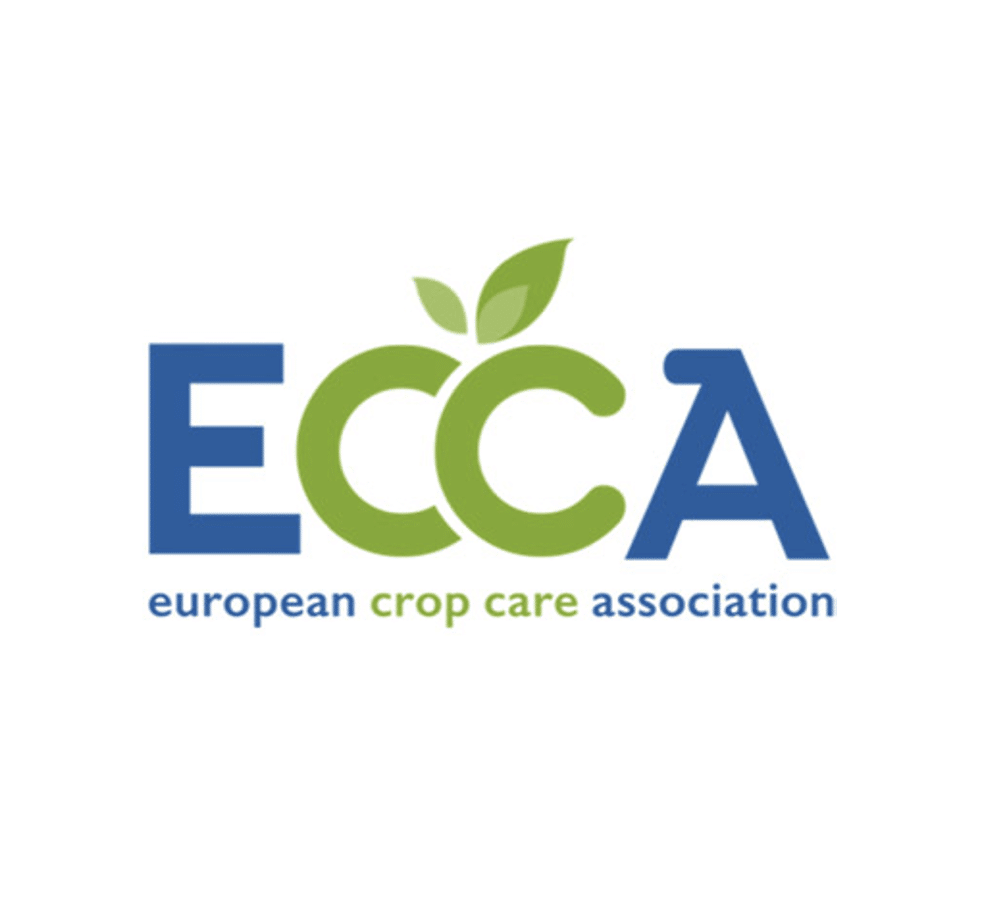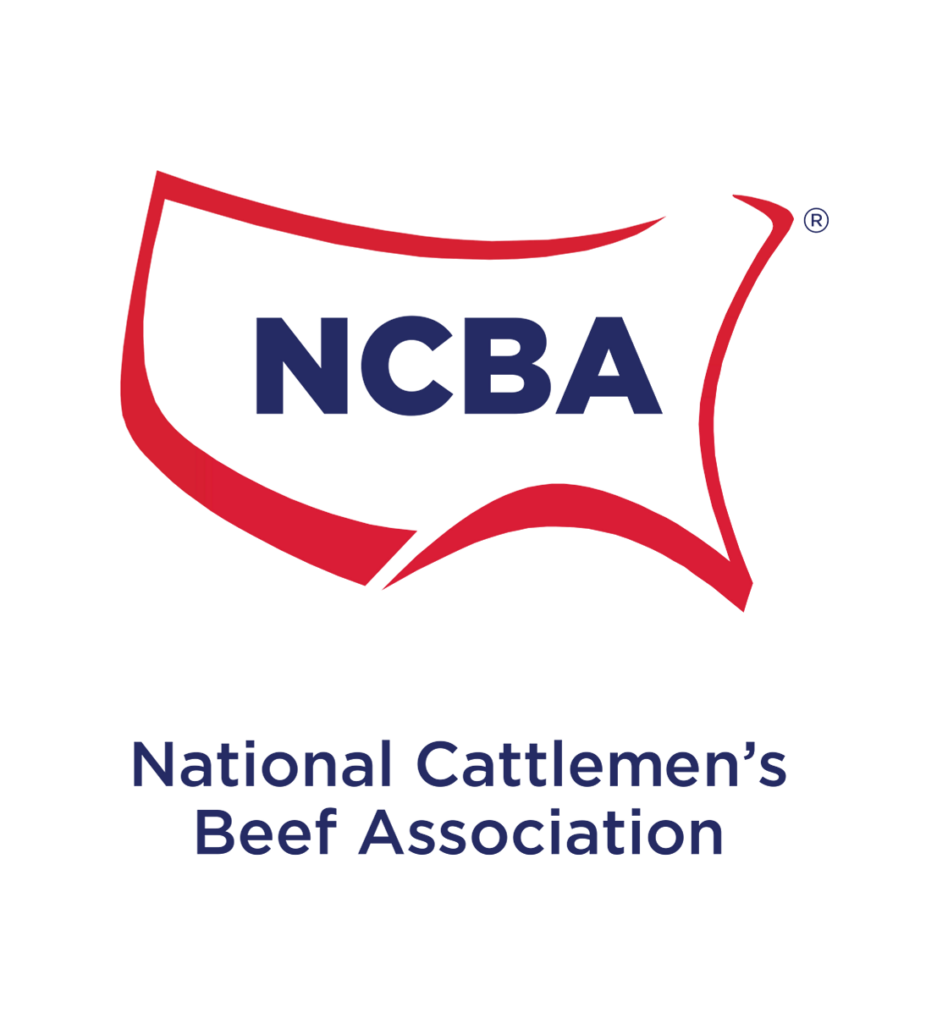Background
The Crop Protection Association (CPA) describes itself as “the voice of the UK plant science industry”. The group was previously called the British Agrochemicals Association when it was formed in 1979 before changing its name in 2000. 1“What We Do,” Crop Protection Association. Archived November 11, 2020. Archive.fo URL: https://archive.fo/IuwTv 2“Crop Protection Association Ltd,” Companies House. Archived November 11, 2020. Archive.fo URL: https://archive.fo/pb7pK
The organisation is made up of “23 member companies representing 96% of the UK market”, according to its website. The Crop Protection Association’s members include the ‘big five’ agribusiness companies: BASF, Bayer, Corteva Agriscience, Syngenta and FMC.3“Who We Are,” Crop Protection Association. Archived November 11, 2020. Archive.fo URL: https://archive.fo/oDGer
It argues that to combat climate change, farmers must be as productive as possible on the land, promoting the use of pesticides to aid this.4“2019 General Election – Crop Protection Association Mini-Manifesto,” Crop Protection Association. Archived November 11, 2020. Archived .pdf on file at DeSmog.
Stance on Climate Change
In a February 2020 letter published on CPA’s website responding to a Guardian column calling for a reform of industry-funded studies by Carey Gillam from non-profit investigative research group US Right To Know, then Chief Executive of CPA Sarah Mukherjee said: “To help fight climate change, we aim to be as productive as possible on the land we have.” She said this is done through the use of crop protection products as “farmers can maximise the productivity of existing farmland resulting in more land for nature.”5“Letter to the Editor – Science Shouldn’t Be For Sale,” Crop Protection Association, February 20, 2020. Archived November 11, 2020. Archive.fo URL: https://archive.fo/YlSIY 6Carey Gillam. “Science Shouldn’t Be For Sale – We Need Reform to Industry-Funded Studies to Keep People Safe,” The Guardian, February 18, 2020. Archived November 11, 2020. Archive.fo URL: https://archive.fo/DC8iJ
CPA published a “Mini Manifesto” in 2019, in which the group outlined its policy priorities for the next government before the 2019 general election. CPA argued that pesticides are needed to fight climate change to allow them to use less land for farming, leaving more land for nature. It says: “To help fight climate change, government must develop policy which allows us to be as productive as possible on land currently under cultivation. By using crop protection products, farmers can maximise the productivity of existing farmland, resulting in more land being spared for nature.”7“2019 General Election – Crop Protection Association Mini-Manifesto,” Crop Protection Association. Archived November 11, 2020. Archived .pdf on file at DeSmog.
In the document, CPA called for the government policy to “strike a balance between protecting and enhancing the environment and supporting productive agriculture in the UK” which it says should include promoting “the role of technology and science providing solutions that meet this aim.”8“2019 General Election – Crop Protection Association Mini-Manifesto,” Crop Protection Association. Archived November 11, 2020. Archived .pdf on file at DeSmog.
Agricultural giant Bayer references on its website a study by Cranfield University on the contribution of crop protection to greenhouse gas emissions. According to Bayer the study “concluded that for one kilo of CO2 equivalent invested in the manufacture and use of pesticides, at least 10kg of CO2 is removed from the atmosphere as a result of yield increases attributed to that pesticide use.” The study was commissioned for the Crop Protection Association and published in August 2009.9“Crop Protection and Climate Change,” Bayer CropScience. Archived November 11, 2020. Archive.fo URL: https://archive.fo/DcqlH 10E. Audsley, K. Stacey, D.J. Parsons, A.G. Williams. “Estimation Of The Greenhouse Gas Emissions From Agricultural Pesticide Manufacture and Use,” Cranfield University, August 2009. Archived November 11, 2020. Archived .pdf on file at DeSmog.
A report published on CPA’s website states that: “We stand on the threshold of the Fourth Agricultural Revolution”. It argues that science and agriculture technological advances “will ensure a supply of plentiful, affordable food, whilst reducing the impact on the environment and leaving space for nature” — a key argument of proponents of digital and precision agriculture.11“Agriculture 4.0 – The Next Agricultural Revolution,” Crop Protection Association. Archived November 11, 2020. Archived .pdf on file at DeSmog.
The report goes on to say: “The challenge for UK farmers will be to produce increasing quantities of nutritious and healthy food, while at the same time making significant environmental gains including improving soils, saving water and reducing carbon emissions.”12“Agriculture 4.0 – The Next Agricultural Revolution,” Crop Protection Association. Archived November 11, 2020. Archived .pdf on file at DeSmog.
“There are hugely exciting new developments in science and technology which can help make this vision a reality,” it adds.13“Agriculture 4.0 – The Next Agricultural Revolution,” Crop Protection Association. Archived November 11, 2020. Archived .pdf on file at DeSmog.
One of the techniques the report suggests is “precision application” of pesticides, which aims to target only specific parts of the field. CPA says that this method “reduces the amount of pesticide which is used and thus slows the development of resistance in pests.”14“Agriculture 4.0 – The Next Agricultural Revolution,” Crop Protection Association. Archived November 11, 2020. Archived .pdf on file at DeSmog.
Read more: Digital and Precision Agriculture – Criticisms and Concerns
The report also says that “reducing the amount of tillage has benefits not only in reducing the compaction of the soil by heavy machinery but in reducing carbon emissions from farm equipment” — a key aspect of regenerative agriculture.15“Agriculture 4.0 – The Next Agricultural Revolution,” Crop Protection Association. Archived November 11, 2020. Archived .pdf on file at DeSmog.
CPA suggests the use of plant breeding to make crops more resistant to drought and disease. It says developments in plant breeding “are essential to improve yields and make crops more resilient to the impact of climate change.”16“Agriculture 4.0 – The Next Agricultural Revolution,” Crop Protection Association. Archived November 11, 2020. Archived .pdf on file at DeSmog.
Role in Pesticides Controversy
CPA describes pesticides as “a fundamental part of modern food production”, but acknowledges that the use of pesticides “often divides opinion and is subject to a great deal of misunderstanding.”17“What We Do,” Crop Protection Association. Archived November 11, 2020. Archive.fo URL: https://archive.fo/IuwTv
CPA is a strong supporter of glyphosate. Glyphosate is the world’s most widely used weed killer which the World Health Organization’s International Agency for Research on Cancer said in 2015 was “probably carcinogenic to humans” but was re-approved for use by the EU in 2017.18“Glyphosate,” Pesticide Action Network. Archived November 9, 2020. Archive.fo URL: https://archive.fo/AparD
Responding to glyphosate litigation in the US, CPA published a press release saying that glyphosate “is, and always has been safe.” In the press release, CPA says “far too many of us know just how awful a diagnosis of cancer can be and we would not in any way wish to diminish how terrible this must be for those suffering from this disease.” And argues that “those with an ideological opposition to pesticides should not use this case to further their agendas by misrepresenting the science.”19“CPA Statement on Glyphosate Litigation in the US,” Crop Protection Association, August 13, 2018. Archived November 11, 2020. Archive.fo URL: https://archive.fo/GgnwD
CPA celebrated glyphosate being re-approved for use for five years by the EU in 2017. Then CPA CEO Sarah Mukherjee said that the loss of glyphosate would have “caused significant damage to the economy, the environment and the agricultural sector.” Mukherjee argues that the “politicisation” of the re-approval “sets a worrying precedent for the future of crop protection and sustainable farming in Europe.”20“CPA Statement on Glyphosate Litigation in the US,” Crop Protection Association, August 13, 2018. Archived November 11, 2020. Archive.fo URL: https://archive.fo/GgnwD
In January 2020, the US Environmental Protection Agency released a statement that said the EPA has concluded that “there are no risks of concern to human health when glyphosate is used according to the label and that it is not a carcinogen.”21“EPA Finalises Glyphosate Mitigation,” US Environmental Protection Agency, January 30. 2020. Archived November 9, 2020. Archive.fo URL: https://archive.fo/iyvPB
A joint report from 2014 by CPA, the National Farmers’ Union (NFU), and the Agricultural Industries Confederation (AIC), claimed that over-regulation of pesticides was “starting to affect our ability to grow crops now and in the immediate future” which “stifles, rather than embraces, progressive innovation”.22“Healthy Harvest – the impact of losing plant protection products on UK food,” Crop Protection Association, National Farmers Union and Agricultural Industries Confederation. Archived November 9, 2020. Archived .pdf on file at DeSmog.
The frequent claims made by both the CPA and the NFU that pesticide usage has halved since 1990 is “misleading”, according to Pesticide Action Network UK (PAN UK), which says it “refers to the weight of the pesticides used and ignores the strength of toxicity, which is significantly higher than that used in the 1990s”.23Catherine Early. “Campaigners accuse farming lobby of misleading public over pesticides,” The Ecologist, April 4, 2018. Archived November 11, 2020. Archive.fo URL: https://archive.fo/YqPAp
Funding
The CPA had net assets of £589,633 in 2019, according to its annual report.24“Crop Protection Association UK Ltd – Filing History,” Companies House. Archived November 11, 2020. Archive.fo URL: https://archive.fo/SjljS
Lobbying
CPA was last registered on the EU’s lobbying database in March 2019. Its disclosure showed it had one person working on EU lobbying on a part-time basis, with lobbying costs of less than €9,999. In 2014, it had four people working on EU lobbying, with lobbying costs of less than €50,000.25“Crop Protection Association (CPA),” LobbyFactsEU. Archived November 11, 2020. Archive.fo URL: https://archive.fo/GeB3x
The CPA and the NFU met with George Eustice, UK Secretary of State for Environment, Food and Rural Affairs, in February 2020 to discuss crop protection products, according to transparency data published by the Department for Environment, Food and Rural Affairs (DEFRA).26“Ministerial Meetings, January to March 2020,” DEFRA, July 30, 2020. Archived November 9, 2020. Archive.fo URL: https://archive.fo/PIfwJ
In a 2014 Q and A by Farmers Weekly, Nick von Westenholz, then CPA chief executive, said that there was “a lot of lobbying and involvement in consultation” regarding challenging EU pesticide regulations. He added: “intensive lobbying from us and our European allies resulted in the officials pausing and putting proper thought into the guidance.”27Nick von Westenholz. “CPA Chief on Fight to Keep Crop Protection Tools,” Farmers Weekly. Archived November 11, 2020. Archive.fo URL: https://archive.fo/DxPTr
Affiliations
CPA’s ‘Agriculture and Horticulture’ members are:28“Who We Are,” Crop Protection Association. Archived November 11, 2020. Archive.fo URL: https://archive.fo/oDGer
- Adama
- BASF
- Bayer Crop Science
- Belchim Crop Protection
- Certis
- Corteva
- De Sangosse
- Fine Agrochemicals
- FMC Agricultural Solutions
- Gemini Agriculture
- Gowan Crop Protection
- Nichino Europe
- Nufarm
- Sumitomo Chemical (UK) Plc
- Syngenta
- UPL OpenAg
CPA is an associate member of the European Crop Protection Association, and a member of CropLife International.29“Members,” CropLife International. Archived November 9, 2020. Archive.fo URL: https://archive.fo/PSOBu
CPA is one of nine members of the Agri-Brexit Coalition, a group which aims to “bring together the expertise of this particular sector of UK agriculture as Brexit negotiations progress”, according to its website. The group says its purpose is to “inform and influence UK Governments in order to achieve a positive outcome to negotiations for UK Agriculture as well as the EU and the wider world.”30“About,” Agri-Brexit Coalition. Archived November 11, 2020. Archive.fo URL: https://archive.fo/pdxkZ
The group’s five aims are: Seeking a fair trading position for UK agriculture across Europe and beyond; delivering innovation; raising productivity and delivering economic benefit; creating practical solutions to policy and regulation; and helping to deliver a modern, resilient UK agriculture.31“About,” Agri-Brexit Coalition. Archived November 11, 2020. Archive.fo URL: https://archive.fo/pdxkZ
The other members of the Agri-Brexit Coalition are:32“About,” Agri-Brexit Coalition. Archived November 11, 2020. Archive.fo URL: https://archive.fo/pdxkZ
- Agricultural Engineers Association (AEA)
- Agricultural Industries Confederation (AIC)
- British Society of Plant Breeders (BSPB)
- Central Association of Agricultural Valuers (CAAV)
- Grain and Feed Trade Association (GAFTA)
- International Meat Trade Association (IMTA)
- National Association of Agricultural Contractors (NAAC)
- National Office of Animal Health (NOAH)
Other Resources
Resources
- 1“What We Do,” Crop Protection Association. Archived November 11, 2020. Archive.fo URL: https://archive.fo/IuwTv
- 2“Crop Protection Association Ltd,” Companies House. Archived November 11, 2020. Archive.fo URL: https://archive.fo/pb7pK
- 3“Who We Are,” Crop Protection Association. Archived November 11, 2020. Archive.fo URL: https://archive.fo/oDGer
- 4“2019 General Election – Crop Protection Association Mini-Manifesto,” Crop Protection Association. Archived November 11, 2020. Archived .pdf on file at DeSmog.
- 5“Letter to the Editor – Science Shouldn’t Be For Sale,” Crop Protection Association, February 20, 2020. Archived November 11, 2020. Archive.fo URL: https://archive.fo/YlSIY
- 6Carey Gillam. “Science Shouldn’t Be For Sale – We Need Reform to Industry-Funded Studies to Keep People Safe,” The Guardian, February 18, 2020. Archived November 11, 2020. Archive.fo URL: https://archive.fo/DC8iJ
- 7“2019 General Election – Crop Protection Association Mini-Manifesto,” Crop Protection Association. Archived November 11, 2020. Archived .pdf on file at DeSmog.
- 8“2019 General Election – Crop Protection Association Mini-Manifesto,” Crop Protection Association. Archived November 11, 2020. Archived .pdf on file at DeSmog.
- 9“Crop Protection and Climate Change,” Bayer CropScience. Archived November 11, 2020. Archive.fo URL: https://archive.fo/DcqlH
- 10E. Audsley, K. Stacey, D.J. Parsons, A.G. Williams. “Estimation Of The Greenhouse Gas Emissions From Agricultural Pesticide Manufacture and Use,” Cranfield University, August 2009. Archived November 11, 2020. Archived .pdf on file at DeSmog.
- 11“Agriculture 4.0 – The Next Agricultural Revolution,” Crop Protection Association. Archived November 11, 2020. Archived .pdf on file at DeSmog.
- 12“Agriculture 4.0 – The Next Agricultural Revolution,” Crop Protection Association. Archived November 11, 2020. Archived .pdf on file at DeSmog.
- 13“Agriculture 4.0 – The Next Agricultural Revolution,” Crop Protection Association. Archived November 11, 2020. Archived .pdf on file at DeSmog.
- 14“Agriculture 4.0 – The Next Agricultural Revolution,” Crop Protection Association. Archived November 11, 2020. Archived .pdf on file at DeSmog.
- 15“Agriculture 4.0 – The Next Agricultural Revolution,” Crop Protection Association. Archived November 11, 2020. Archived .pdf on file at DeSmog.
- 16“Agriculture 4.0 – The Next Agricultural Revolution,” Crop Protection Association. Archived November 11, 2020. Archived .pdf on file at DeSmog.
- 17“What We Do,” Crop Protection Association. Archived November 11, 2020. Archive.fo URL: https://archive.fo/IuwTv
- 18“Glyphosate,” Pesticide Action Network. Archived November 9, 2020. Archive.fo URL: https://archive.fo/AparD
- 19“CPA Statement on Glyphosate Litigation in the US,” Crop Protection Association, August 13, 2018. Archived November 11, 2020. Archive.fo URL: https://archive.fo/GgnwD
- 20“CPA Statement on Glyphosate Litigation in the US,” Crop Protection Association, August 13, 2018. Archived November 11, 2020. Archive.fo URL: https://archive.fo/GgnwD
- 21“EPA Finalises Glyphosate Mitigation,” US Environmental Protection Agency, January 30. 2020. Archived November 9, 2020. Archive.fo URL: https://archive.fo/iyvPB
- 22“Healthy Harvest – the impact of losing plant protection products on UK food,” Crop Protection Association, National Farmers Union and Agricultural Industries Confederation. Archived November 9, 2020. Archived .pdf on file at DeSmog.
- 23Catherine Early. “Campaigners accuse farming lobby of misleading public over pesticides,” The Ecologist, April 4, 2018. Archived November 11, 2020. Archive.fo URL: https://archive.fo/YqPAp
- 24“Crop Protection Association UK Ltd – Filing History,” Companies House. Archived November 11, 2020. Archive.fo URL: https://archive.fo/SjljS
- 25“Crop Protection Association (CPA),” LobbyFactsEU. Archived November 11, 2020. Archive.fo URL: https://archive.fo/GeB3x
- 26“Ministerial Meetings, January to March 2020,” DEFRA, July 30, 2020. Archived November 9, 2020. Archive.fo URL: https://archive.fo/PIfwJ
- 27Nick von Westenholz. “CPA Chief on Fight to Keep Crop Protection Tools,” Farmers Weekly. Archived November 11, 2020. Archive.fo URL: https://archive.fo/DxPTr
- 28“Who We Are,” Crop Protection Association. Archived November 11, 2020. Archive.fo URL: https://archive.fo/oDGer
- 29“Members,” CropLife International. Archived November 9, 2020. Archive.fo URL: https://archive.fo/PSOBu
- 30“About,” Agri-Brexit Coalition. Archived November 11, 2020. Archive.fo URL: https://archive.fo/pdxkZ
- 31“About,” Agri-Brexit Coalition. Archived November 11, 2020. Archive.fo URL: https://archive.fo/pdxkZ
- 32“About,” Agri-Brexit Coalition. Archived November 11, 2020. Archive.fo URL: https://archive.fo/pdxkZ

